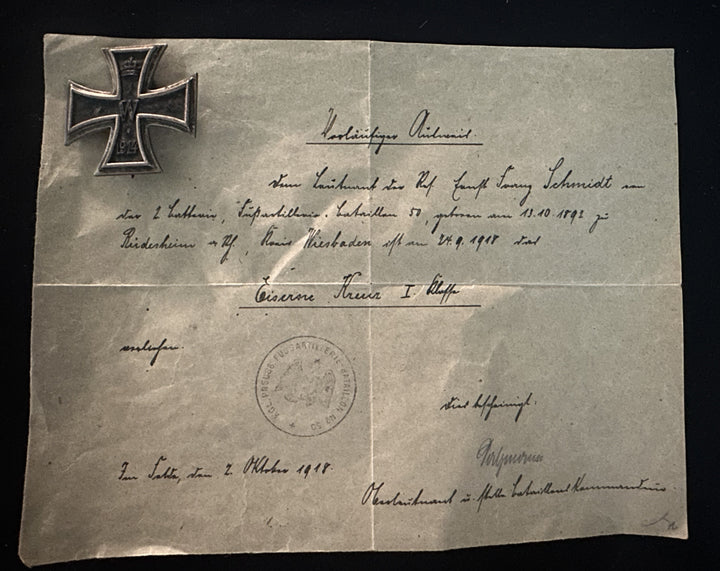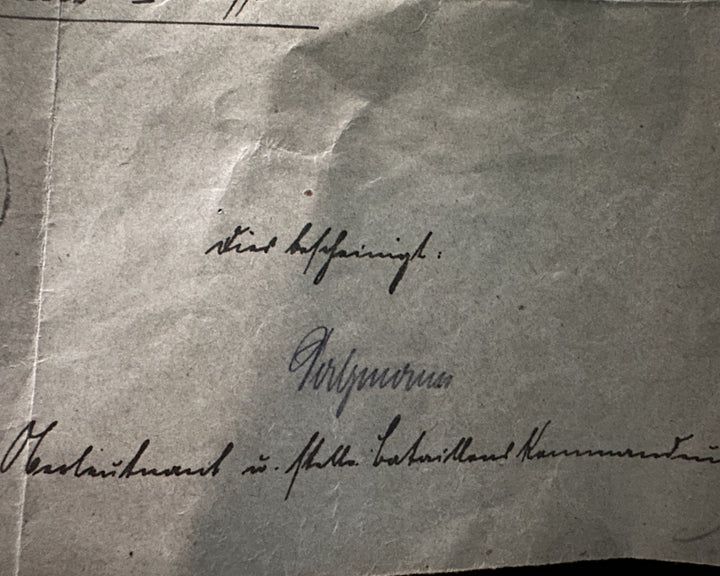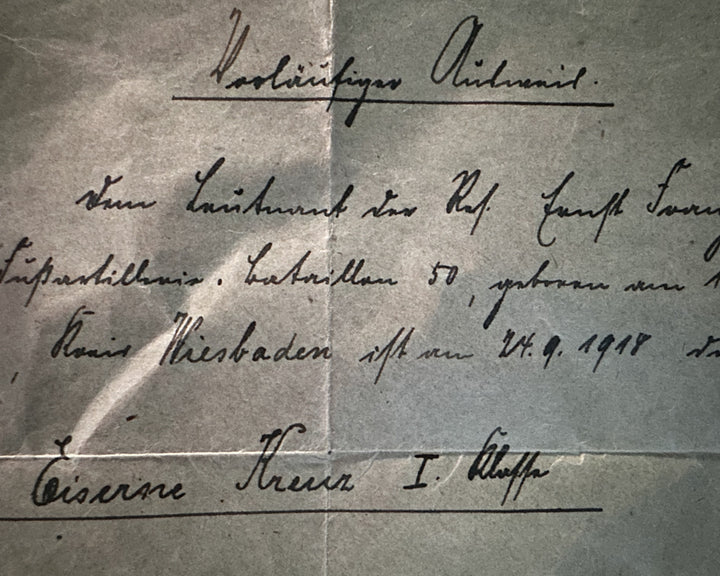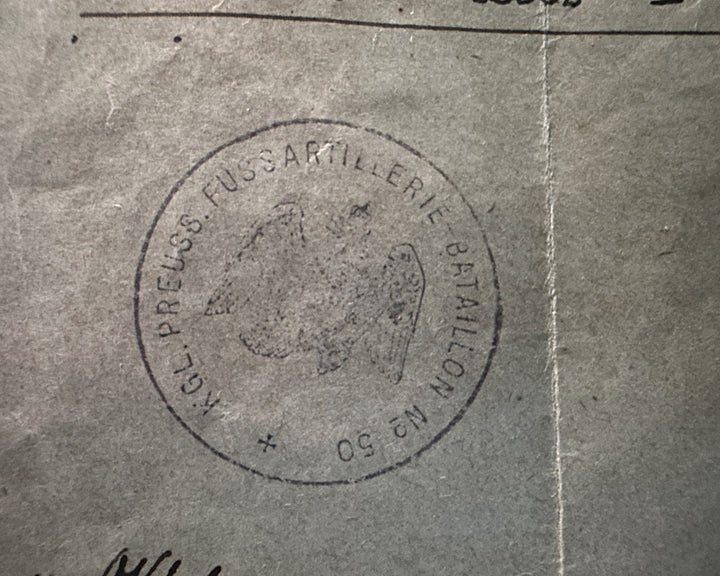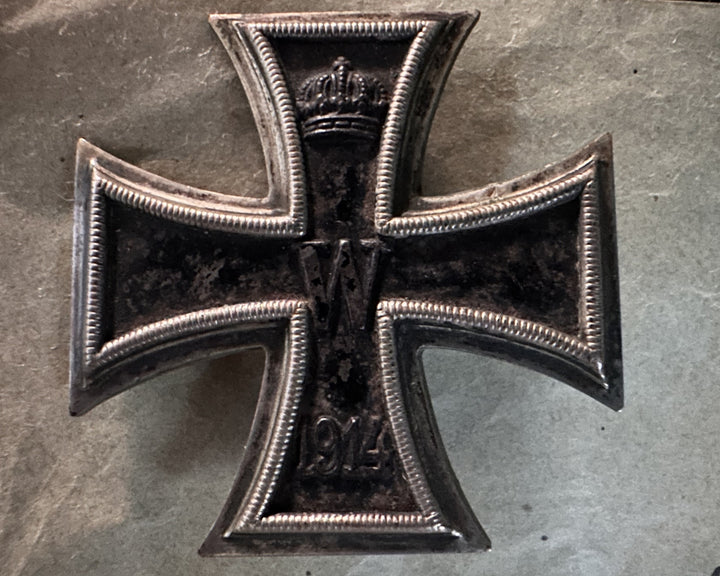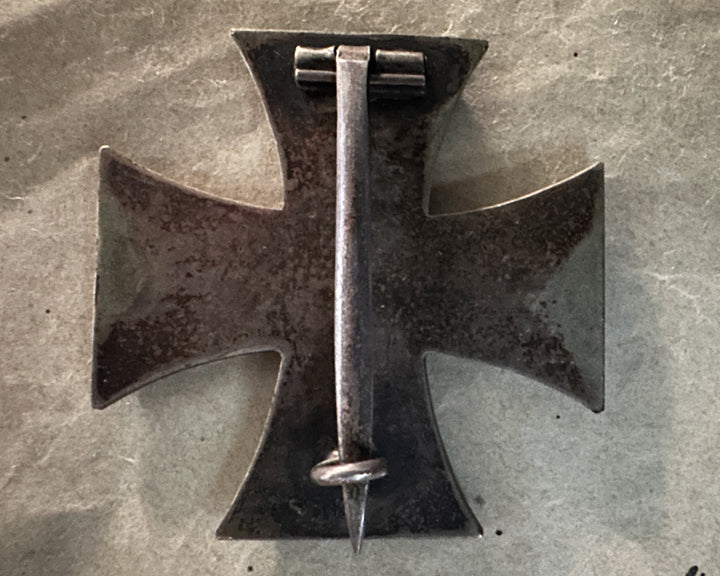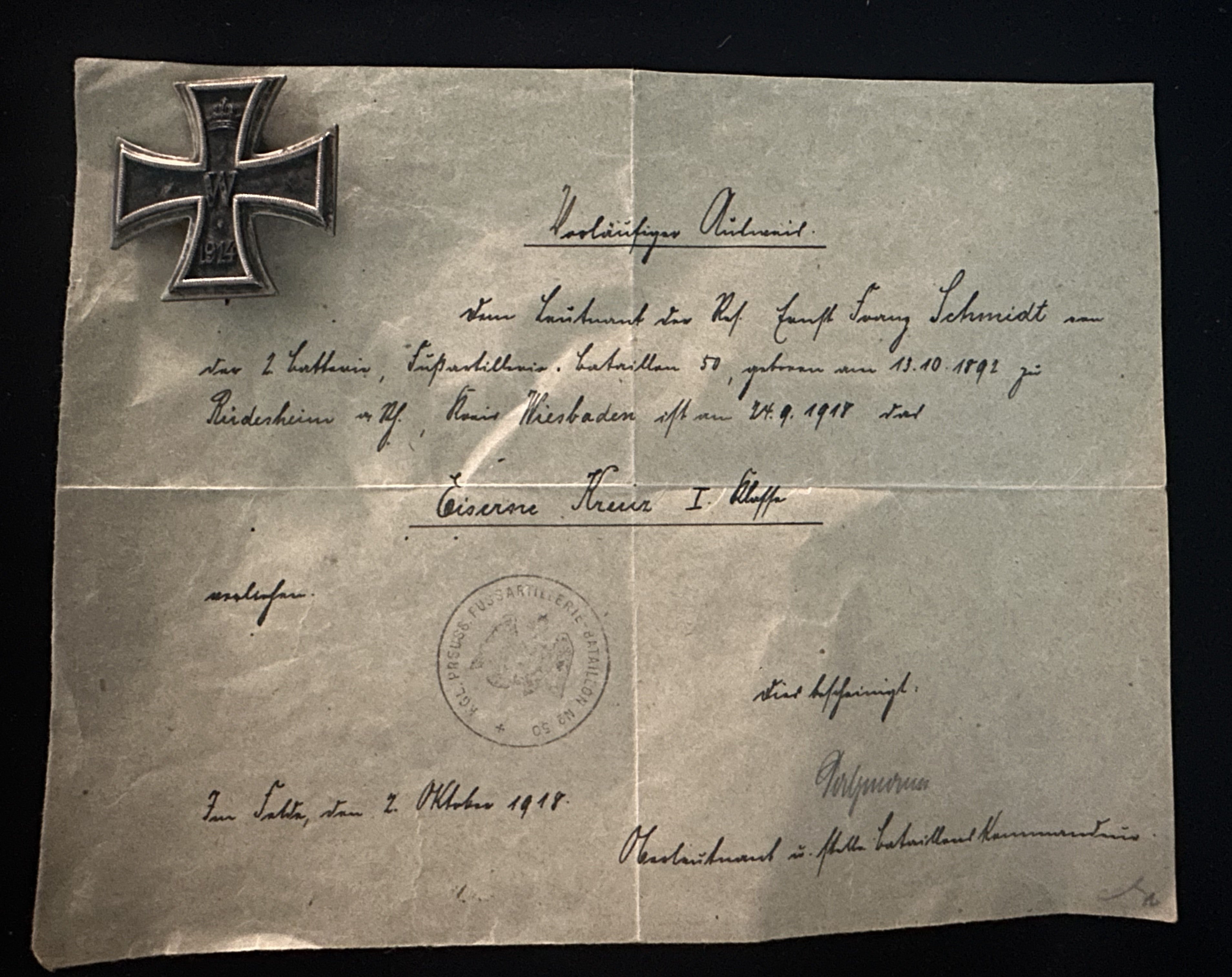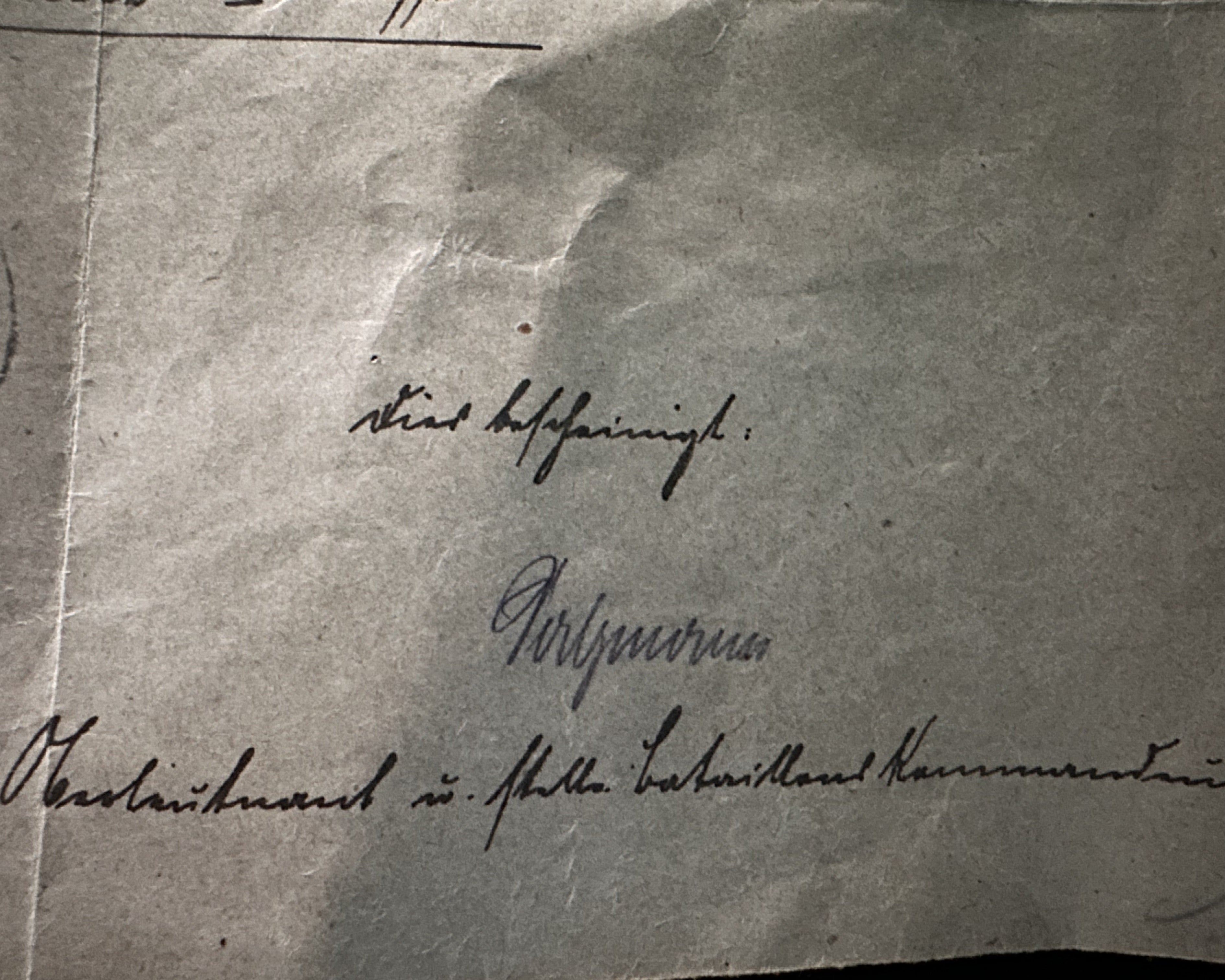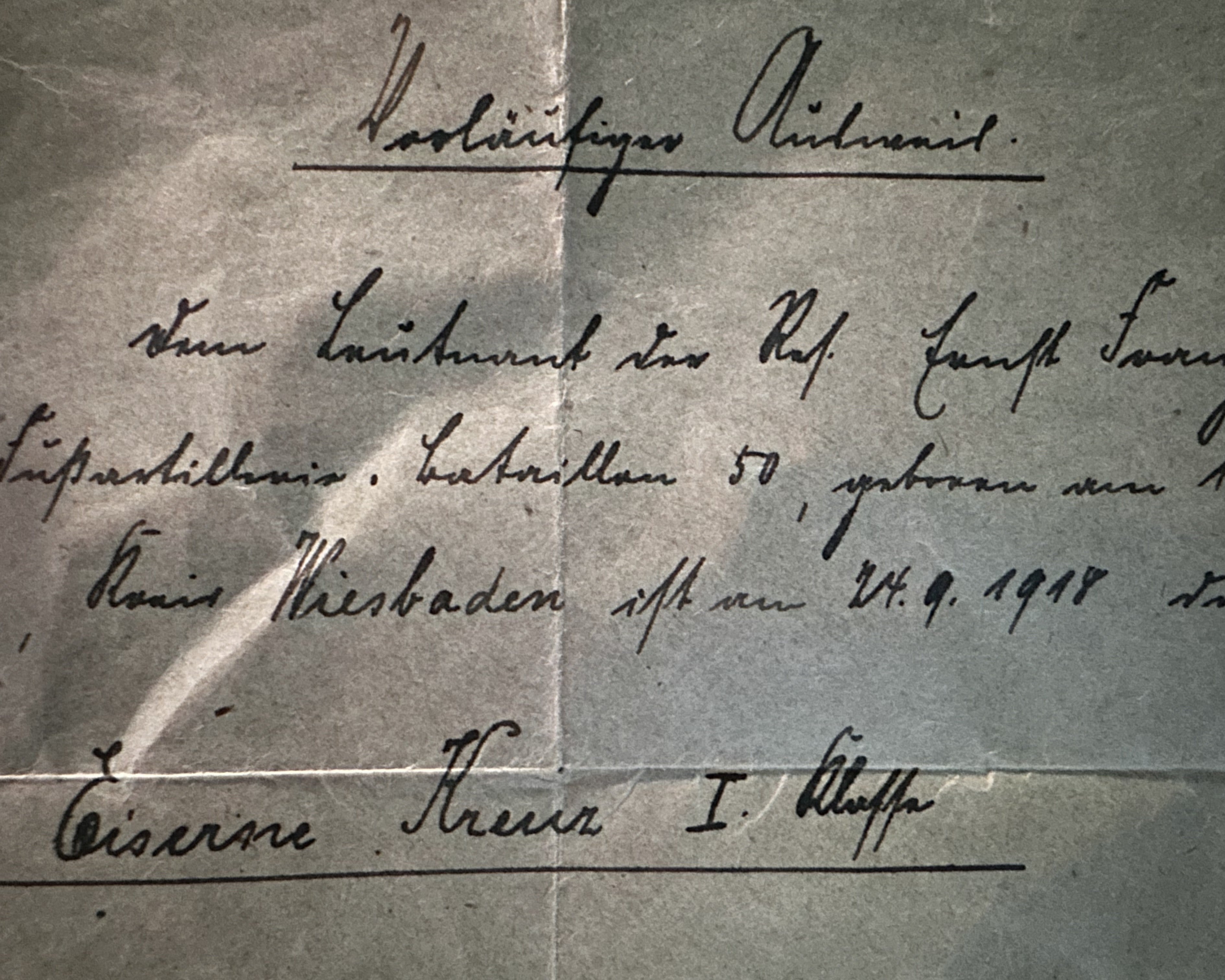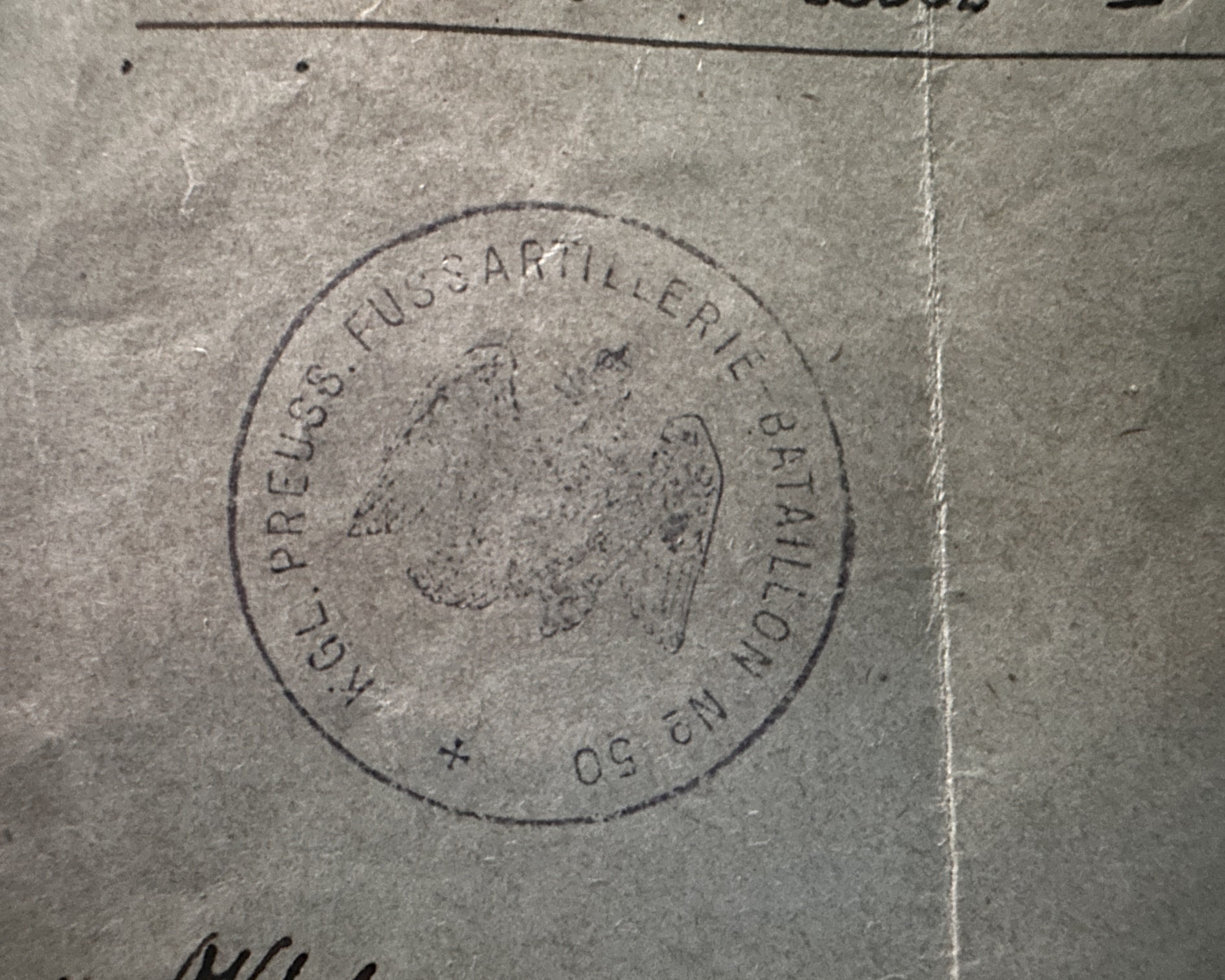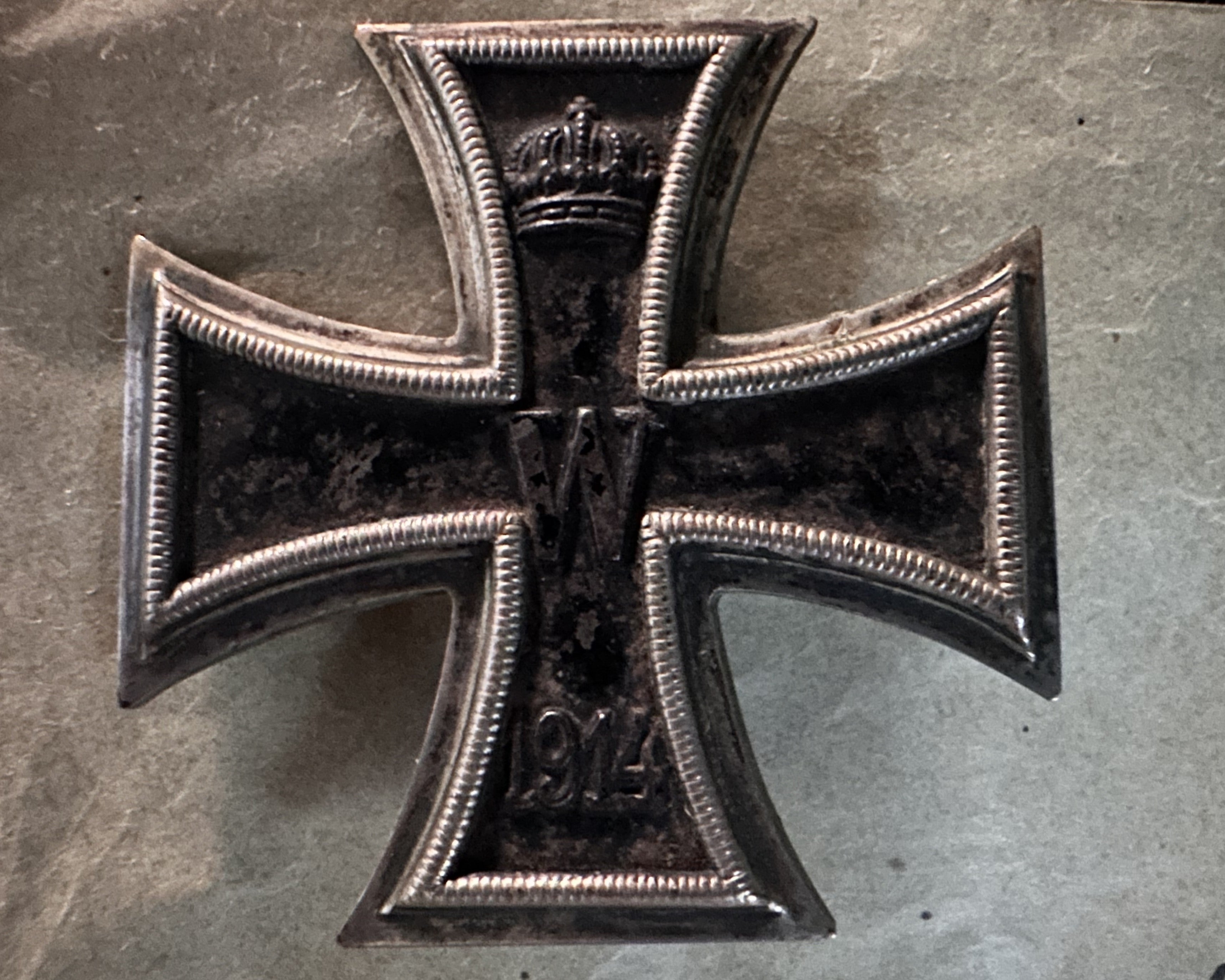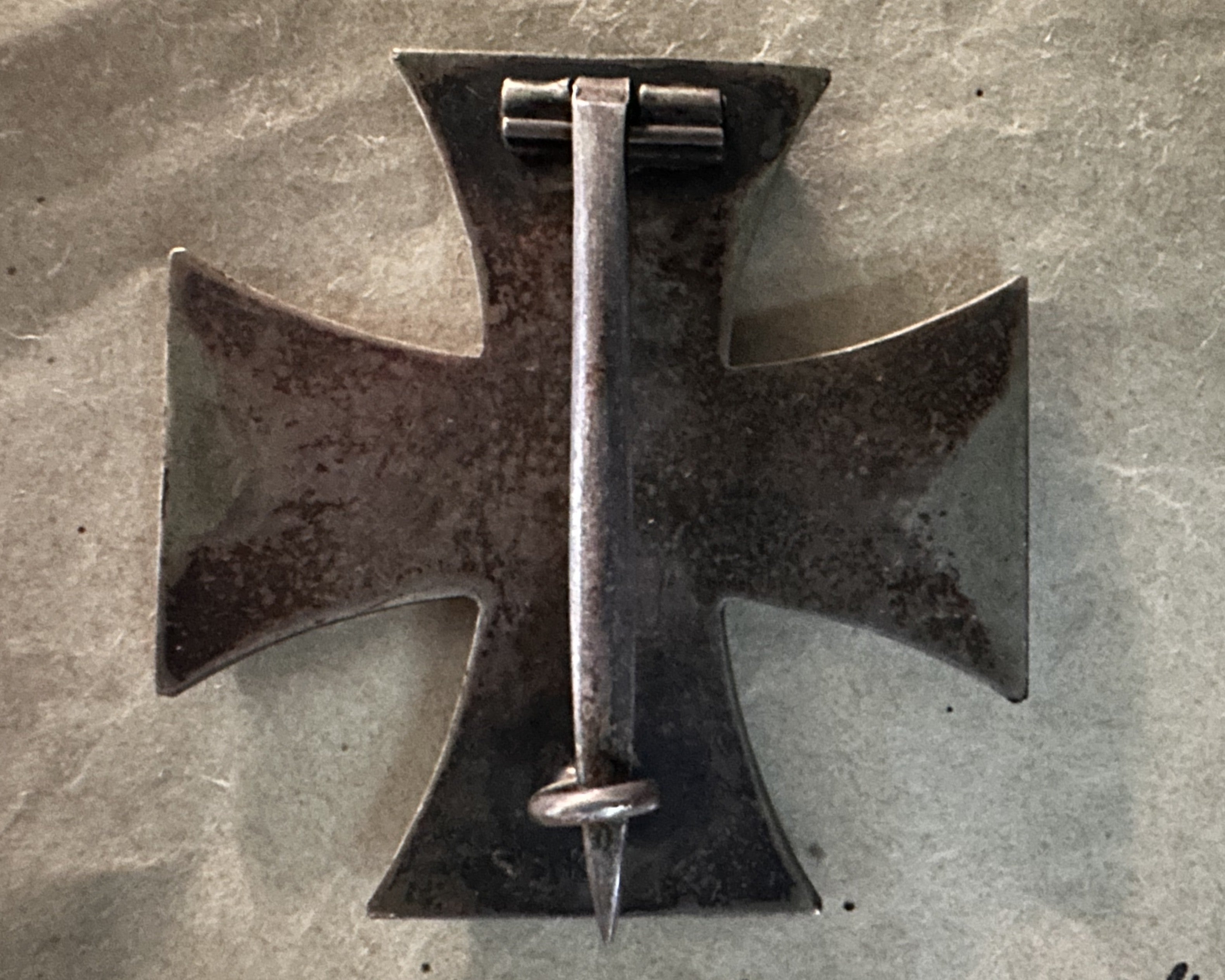Prussia – Iron Cross 1st Class with Provisional Award Document (1918)
- Regular price
- $865.00
- Sale price
- $865.00
- Regular price
SKU: 06-04
This grouping consists of an authentic Iron Cross 1st Class (EK I), 1914 issue, together with its original provisional award certificate (Vorläufiges Besitzzeugnis) to Leutnant der Reserve Ernst Franz Schmidt of the 2. Fußartillerie-Bataillon Nr. 50, dated 2 October 1918.
The EK I is a classic vaulted example, three-piece construction with magnetic iron core, silver frame, and pin-back fastener. Patina and wear are consistent with period use, with a deep age toning to the silver rim and moderate surface oxidation to the iron core. The reverse hardware is textbook for late-war issue pieces.
The accompanying document is written on field-grey paper and bears the impressed unit seal of Kgl. Preuß. Fußartillerie-Bataillon Nr. 50, along with the signature of the Oberleutnant commanding. Such provisional documents were often issued in the field, to be followed later by the formal award document from higher authority.
German Transcription (as written on the document)
English Translation
Provisional Possession Certificate
To Lieutenant of the Reserve Ernst Franz Schmidt of the 2nd Battery, Foot Artillery Battalion 50, born 13 October 1892 in Biebrich am Rhein, District of Wiesbaden, the Iron Cross 1st Class was awarded on 24 September 1918.
Issued in the field, 2 October 1918.
[Seal: Royal Prussian Foot Artillery Battalion No. 50]
[Signature]
Oberleutnant and Acting Battery Commander Kammerstein
Historical Context
The Iron Cross 1st Class (EK I) was one of Imperial Germany’s most prestigious decorations, awarded for repeated acts of bravery or exceptional leadership. In the closing months of the war, such awards were increasingly rare as resources dwindled and the front lines collapsed.
Fußartillerie-Bataillon Nr. 50 (Prussian Foot Artillery Battalion No. 50)
-
Based in Mainz, this battalion operated heavy artillery pieces, including 15cm and 21cm howitzers, critical for both defensive fire and long-range bombardment.
-
During the final offensives of 1918, units like F.A.B. 50 provided support during the German Army’s desperate attempts to hold the Allied advance.
-
Documents from heavy artillery formations are scarcer than those from infantry regiments, making this unit designation especially desirable to collectors.
Leutnant der Reserve Ernst Franz Schmidt (b. 1892)
-
Born in Biebrich am Rhein (today part of Wiesbaden), Schmidt would have been 26 years old at the time of his decoration.
-
As a reserve officer in the foot artillery, he likely had a civilian career interrupted by wartime service. Further archival research (Wiesbaden local archives, German Federal Archives) could potentially trace his postwar life.
-
The fact that he achieved the EK I, as a junior reserve officer, speaks to his bravery and leadership in heavy combat conditions.
Collector Notes
-
Iron Cross EK I: Untouched, all-original example, excellent patina, correct vaulted construction.
-
Provisional Document: Scarce surviving type, with full legible handwriting, regimental stamp, and officer’s signature. Provisional certificates are particularly prized since they were field-issued and often discarded after the “official” version arrived.
-
Grouping Value: Named and unit-stamped EK I sets are significantly more desirable than a loose medal. The presence of both the cross and document elevates this offering considerably.
